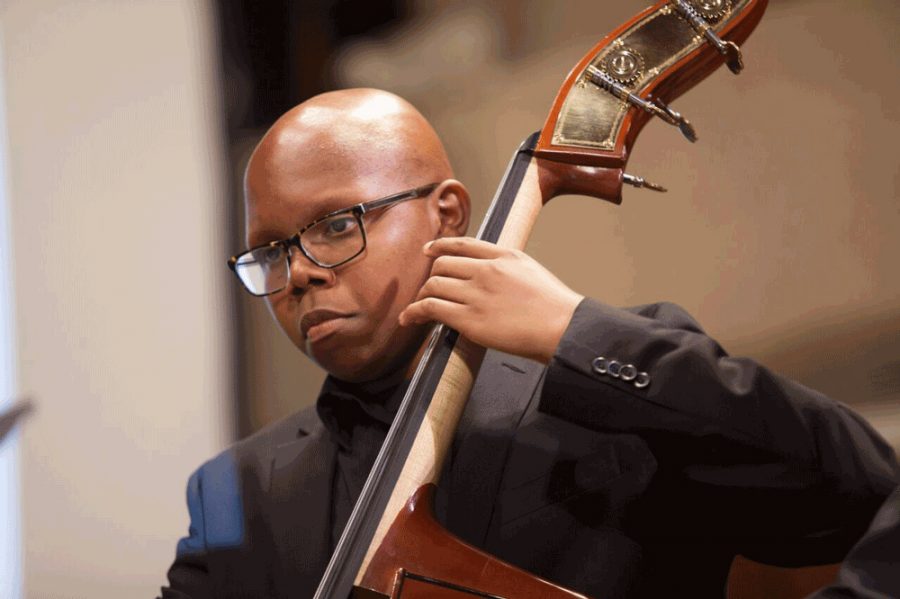Oberlin Pays Tribute to Austin Bombing Victim Draylen Mason
Photo Courtesy of East Austin College Prep
Draylen Mason was accepted to Oberlin’s Conservatory of Music shortly before his murder. Following the official news of his acceptance, alumni began circulating a petition to award Mason a posthumous Bachelor of Music degree.
The murder of 17-year-old Draylen Mason by the Austin, TX, serial mail bomber has received attention from communities nationwide, but particularly at Oberlin College and Conservatory, the latter of which had accepted Mason around the time of his death. The College, now grappling with how to honor Draylen’s memory, has encouraged community members to donate to two funds associated with his family and life.
The College released a statement announcing its support for Mason titled “Honoring Draylen Mason’s Memory,” which reflected Oberlin’s desire to carry out a meaningful response to the Austin bombings. It directed sympathizers to a fund established to help Mason’s family offset home repair costs and his mother’s medical expenses after the bombing. It also encouraged donations to the Draylen Mason Fellows Program established by Austin Soundwaves, a music education program for underserved youth that Mason was deeply involved with.
“Everyone in the Oberlin community wants to do the right thing,” Vice President and Dean of Students Meredith Raimondo said. “Now, it’s just a conversation about what the right thing is.”
Mason’s premature death ignited an outpouring of responses, most notably in the form of an online petition asking the Conservatory to award Mason a posthumous Bachelor of Music degree and establish a scholarship fund in his name for students of color in the conservatory. The petition, started by Conservatory alumnus Joshua Blue, OC ’16, has gained over 20,000 signatures. It references Mason’s unwavering commitment to music and the dire need for minority representation in the musical arts as reasons favoring his recognition.
“A student who was clearly up for the challenge, Draylen would have been entering the world of music without many mentors who look like him,” the petition reads. “His entry into musical academia would in itself be a radical action, and for his sake, and for those who are put off by the lack of representation, this needs to change.”
Citing Mason’s connection to the Conservatory as an admitted student, as well as Oberlin’s historical commitment to increasing diversity and inclusion, Blue said that fulfilling the petition’s requests would be consistent with Oberlin’s established values and would be the most appropriate way of honoring Mason.
“We’re asking for Oberlin as an institution to get behind [the petition] and say, ‘This is something that we believe in, and we want to be a part of that change,’” Blue said. “Oberlin has such a vibrant history of working with people of color and minority groups and enacting change, so this seems right on the level of what they’ve already done.”
The petition is careful to not overextend Mason’s connection to Oberlin, as he died before committing to a school. However, Blue also asserted that Mason’s eventual school choice should not be a concern.
“I see this as the spark that moves more schools towards accessibility nationwide,” Blue said. “If the world saw an institution that was held to such high esteem like Oberlin doing something like this, then it could create a chain reaction among other schools around the country.”
Blue said he approved of the actions that the College and Conservatory have taken so far, but emphasized the need for supporting underrepresented musicians at all stages of education. He also highlighted the responsibility for institutions like Oberlin to provide collegiate-level financial support.
“For musicians entering higher education, there are far fewer opportunities for them to succeed,” Blue added. “The petition is really trying to focus on representation and accessibility at a collegiate level.”
The Conservatory currently oversees a number of initiatives aimed at increasing diversity and inclusion in the arts, including maintaining a relationship with the Sphinx Organization, a group dedicated to supporting the representation of Black and Latinx students in classical music. Qualifying students receive scholarships for undergraduate- and graduate-level studies. Additionally, Oberlin’s Francis Walker-Slocum Scholarship exists specifically to support African-American Conservatory students.
Dean of the Conservatory Andrea Kalyn wrote in an email to the Review that diversity is a major consideration throughout the entire admissions process.
“The Conservatory has worked hard to recruit talented musicians from arts high schools with underrepresented populations,” she wrote. “We are also incredibly fortunate that Oberlin’s financial aid values and policies allow us to provide talented students of need access to this conservatory education.”
Although the statement acknowledged the issue of providing financial support to young musicians of color, it made no mention of the possibility of awarding Mason a posthumous honorary music degree.
In later correspondence, Kalyn wrote that awarding Mason a posthumous degree was not under consideration. Posthumous degrees are typically conferred to recognize work completed at Oberlin; in the rare cases where they have been awarded, the recipients were not only enrolled at Oberlin but had also completed necessary degree requirements before their death. Conferral of honorary degrees constitutes a different process.
“They are awarded in recognition of a person’s professional accomplishments, most typically in the advanced stages of their careers,” Kalyn wrote.







